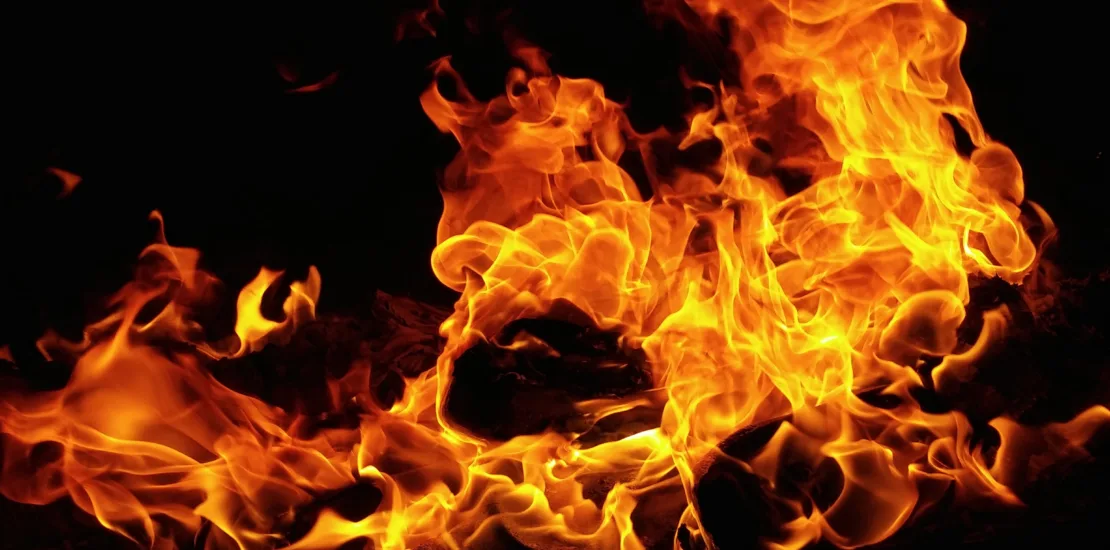- May 27, 2024
- Category: Uncategorized, Auto, Home, Tips & Advice

Last June, Nova Scotia residents faced the terrifying reality of wildfires. The fires not only wreaked havoc on our beautiful landscapes but also brought to light the critical importance of being prepared and properly insured. The wildfires represented more than just flames and destruction; they symbolised a sudden and profound loss for many in our community. In Nova Scotia 2023, reported insured damages from wildfires amounted to $165 million, with 90% being personal property claims. At Cluett Insurance, we are dedicated to helping you safeguard your home, your vehicle, and your peace of mind.
For those who were unfortunate enough to experience it firsthand, the wildfires meant a loss of security, stability, and cherished memories. Homes that once provided comfort and safety were reduced to ashes, and with them, precious mementos and keepsakes that told the stories of our lives. The financial burden was immense, with costs not just limited to rebuilding or replacing homes and vehicles, but also the expenses related to temporary housing, evacuation, and lost income. Beyond the tangible losses, there was an emotional toll that left many feeling vulnerable, anxious, and uncertain about the future.
Reflecting on last season, we realise how essential it is to be proactive. Ensuring your home and auto insurance policies are up-to-date and provide adequate protection against wildfires is a crucial step towards safeguarding your future. As the weather warms up and we look forward to sunny days and outdoor adventures, let’s take the lessons we’ve learned and turn them into actions that protect our families and communities.
Supporting Your Community in Times of Crisis
Being prepared is not just about policies and plans; it’s also about people. At Cluett Insurance, we believe in the power of community resilience. In times of crisis, it’s vital to stand up and support each other however we can. Whether it’s offering a helping hand, providing resources, or simply being there to listen, our strength lies in our unity.
Let’s carry forward the spirit of community support we saw during last year’s wildfires. By standing together, we can navigate through any challenge and rebuild stronger than before. For both past and future events, let’s make sure we are there for each other, reinforcing the bonds that make our community strong and resilient.
Reviewing Your Insurance Coverage
It’s essential to review your current insurance policies to ensure they provide the necessary protection. Here are some key points to consider:
1. Check Your Area:
- Policy Updates: Insurance policies and coverage options can change. Stay informed about any recent updates or changes, especially those related to wildfire coverage.
- Local Risks: Understand the specific risks in your area. Nova Scotia has seen an increase in wildfire activity, so ensuring your policy covers these risks is crucial.
2. How Much Is Insured?
- Coverage Amounts: Assess the coverage limits on your home and auto insurance policies. Ensure these amounts are sufficient to rebuild or replace your home and vehicle in the event of a wildfire.
- Inflation Considerations: Costs for construction and replacement can rise due to inflation. Update your coverage limits to reflect current market values.
3. Necessary Documents for a Claim
In the unfortunate event that you need to make a claim, having the right documents ready can expedite the process. Here’s what you should prepare:
- Insurance Policy Information: Keep copies of your insurance policy documents.
- Inventory List: Maintain an updated inventory of your home’s contents, including photos or videos, descriptions, and receipts for high-value items.
- Proof of Loss Forms: Some insurers require specific forms when filing a claim.
- Vehicle Information: Have your vehicle’s title, registration, and recent photos available to support your auto insurance claim.

Essentials to Take with You in an Emergency
If you need to evacuate quickly due to a wildfire, having a plan and knowing what to take can make a significant difference. Consider these essentials:
1. Important Documents:
- Identification: Passports, driver’s licenses, and other essential identification documents.
- Insurance Papers: Copies of your insurance policies and contact information for your insurance company.
- Financial Records: Bank account details, credit card information, and important financial documents.
2. Personal Items:
- Medications: Prescription medications and necessary medical supplies.
- Clothing: A few days’ worth of clothing for each family member.
- Valuables: Items of sentimental or high monetary value that you can quickly gather.
3. Emergency Supplies:
- First Aid Kit: Basic first aid supplies for injuries.
- Food and Water: Non-perishable food items and bottled water for several days.
- Electronics: Chargers for phones and other essential devices, and a portable battery pack.
4. Comfort Items:
- Blankets and Pillows: For comfort if you have to stay in a temporary shelter.
- Toys and Books: For children to help them stay calm and occupied during the evacuation.
Conclusion
With the increasing threat of wildfires, especially as seen last June in Nova Scotia, it’s essential to be proactive in ensuring that your home and auto insurance policies provide adequate coverage. By reviewing your policies, understanding what is insured, keeping necessary documents ready, and knowing what to take in an emergency, you can better protect yourself and your family.
Stand Strong, Stand Together: Supporting Our Community in Times of Crisis
In the face of adversity, our strength lies in our unity. Let us stand together, support one another, and emerge from challenges stronger and more resilient than ever before. #CommunityResilience #StandStrong #CluettCares
